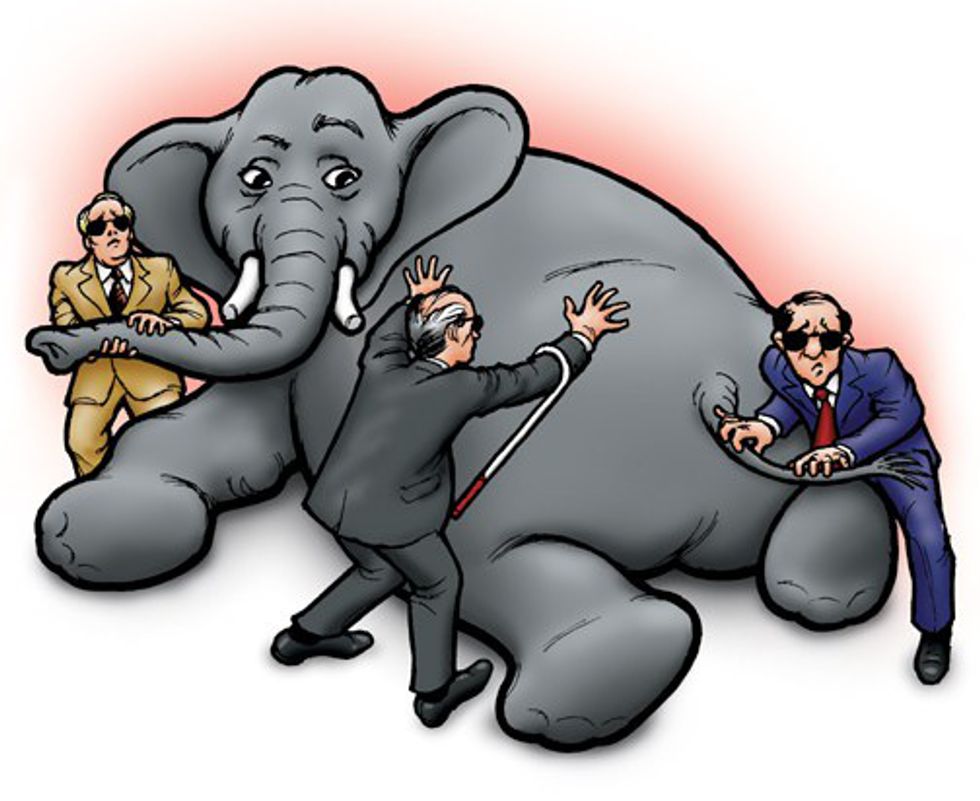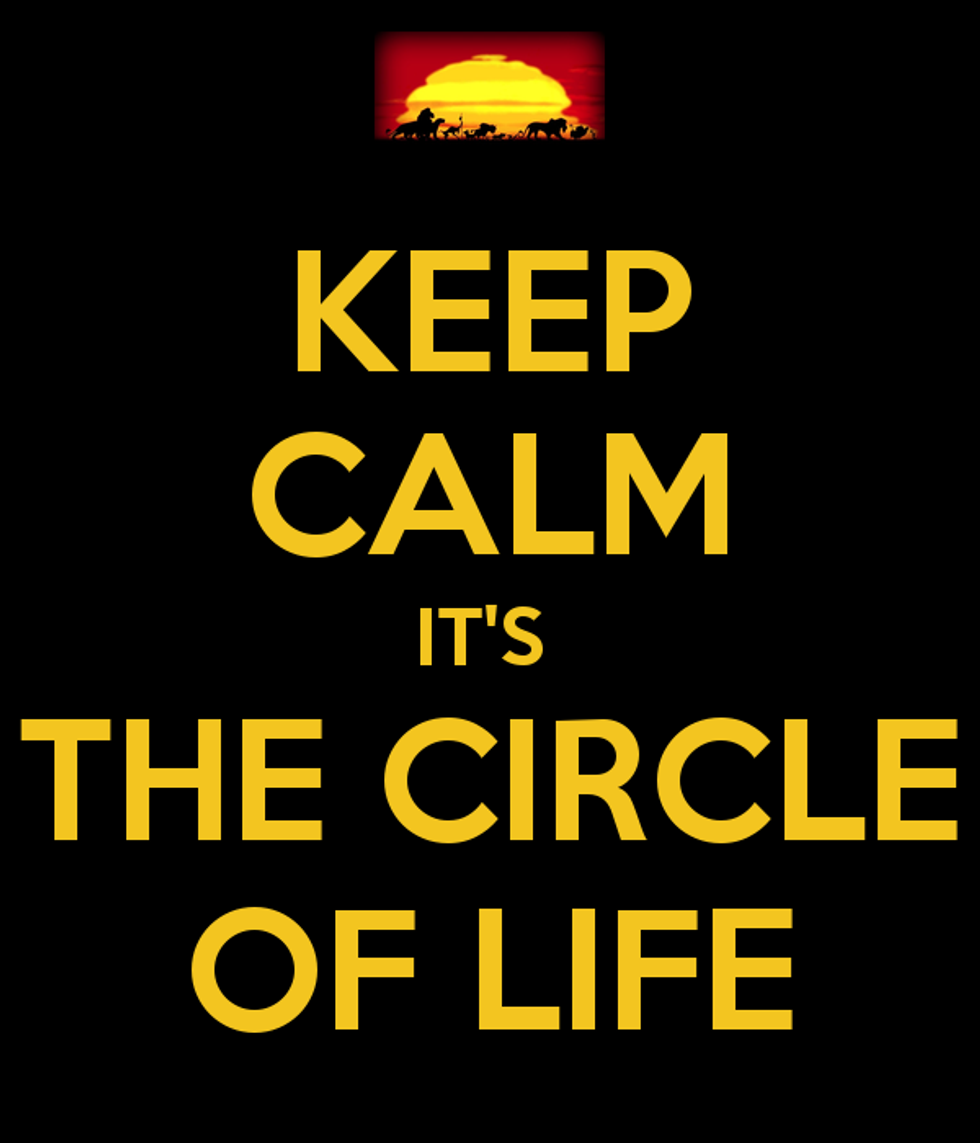Prayer means a many things to different people. It really just depends on who you ask. For some it is a deep connection with their god wherein they have conversations with their god. They tell of their day, thank their god for the blessings they have received, and ask for things that would make the daily toils less strenuous. Some simply pray by thanking their god or by ask for things. Whatever the definition, it is a way for people to connect spiritually to their concept of a higher power. A direct line, so to speak, to help people better align with their god's will. At least this is what I understand to be true for the Christian religion, but I have difficulty speaking about other religions' practices.
Prayer can be comforting, it can be meaningful, and it can work to bring together people in times of need. This is true for religion also. As much as I get frustrated with religion, or what people who follow religions do, it is an undoubtedly powerful force. It is an incredible motivator. However, as with many things, it is a double edged sword. Often people speak to the goodness of prayer, but rarely do people speak to how it can be nonsensical, ineffective, and sometimes even dangerous. I would like to be a voice who speaks to those aspects of prayer for a moment.
Nonsensical
If there was anyone who could point out the idiocies of our society, no one did it better than George Carlin. Needless to say, he didn't have kind words about prayer. The following ideas about the nonsensical nature of prayer came from his stand-up, his movies, and his books.
Disappointment
Think about a war or a football game. You're praying for your side to win while your enemies or the opposing team's supporters are doing the same thing! As George points out in his book Life Is Worth Losing, "America prays for God to destroy our enemies. Our enemies pray for God to destroy us. Somebody's gonna be disappointed. Somebody's wasting their [...] time. Could it be everyone?"
God's Plan
So what do you say and do when nothing happens after you pray for something? You could sympathize with Job and hope that God is simply testing you. You could comfort yourself by repeating to yourself that if you just believe harder then you will get what you asked for. Perhaps, you'll use blind faith in the Bible and recite passages of when Jesus spoke of praying dutifully, "Men always ought to pray and not lose heart" (Luke 18:1)", or when Paul spoke, "pray without ceasing ... for this is the will of God in Christ Jesus concerning you" (1 Thessalonians 5:17–18)". But doesn't all of that seem like a lot of mental gymnastics to quell the rising fear in your heart that your actions are all for naught?
Maybe you are one of those who rationalizes it away by saying, "Well, it's God's will, and thy will be done." As George Carlin points out, if it's God's will and He's going to do what He wants anyway, then why even bother praying? Plus, what about God's plan? God has a plan. Had one from the beginning, and He has sticking to it to the best of anyone's knowledge. So, are you saying that now that you've prayed you get to change God's plan? Maybe it was in God's plan for you to pray for that thing in the first place and He planned from the very beginning to not give it to you. Why would He do that? I guess how you rationalize through those questions will depend a lot on how much of a Calvinist you are.
You're not communicating with anyone
I realize that some of you - if not most of you - actually feel or have felt as if you have a connection with God. Some of you may even claim to have spoken with God directly. In the end I can't disprove something, because to disprove something is a logical impossibility. However, I can say that I don't believe that you. I don't believe you not only because feelings of something are hardly the objective truth about what is going on, but also because you have a very particular definition of what God is. This definition of God is going to be mainly unique to you and your emotions and experiences. Further, your definition of God may contradict others' definition.
At this point it becomes a question of who is right. To this effect, we get back to the same questions of the Disappointment section above. How can you claim to have a connection with God and someone else have just as strong a connection with a completely different god? You can say that they both exist, although that goes against the very idea of the Christian monotheism. You could say that they are both the same god, but then you redefine your God by doing so and it is even more than difficult to say that the God of other religions - even in the Abrahamic religions, let alone outside of them - are the same god and have the same values and have taken the same actions. When it gets to the nuts and bolts, the "we all worship the same god" thing falls apart quickly unless you are a die-hard deist. In that case you might quote to me the metaphor of the blind men and the elephant. However, at that point, your and my beliefs are not so different anymore.
Science!
Plus, there is a bit of science to prove that you may just be calling upon a deeply rooted evolutionary coping mechanism. There is a fun little helmet nicknamed "The God Helmet" that has made people feel the presence of God among other paranormal experiences such as demons, out of the body experiences, a presence in general or of loved ones, and a sense of intense security. Check out this video clip which is wonderfully narrated by Morgan Freeman that explains it a bit.
The basic premise is that the helmet has little magnets that provoke the parietal and the temporal lobe. The parietal and temporal lobe are suspected to be the agents that cause people to have religious and spiritual experiences. This may be due to the functions of each. The temporal lobe is mainly concerned with auditory sensory input processing while the parietal lobe is concerned with sensation and perception in one region while a second region is concerned with visual input processing. These lobes that greatly affect our general cognition end up being key in religious experiences.
From an article that does an even better job explaining the device titled, The God Helmet, there is an excerpt detailing how they produce the religious experience.
"The DAC produces the signals that are fed to the magnetic coils (called "solenoids" in the scientific papers). First, one signal is fed to the right side of the brain, and then another signal is fed to both sides. When the signals are changed halfway through the experimental session, the corresponding shift in brain activity can create a religious experience."
The reason that there may be a biological reaction that makes a person have a religious experience is for the purposes of stress management. One theory is that as animals evolved and became smart enough to understand stress and mortality they needed something that would help them cope. They needed something - or someone - that was ever-present, had limitless power, and was looking out for them. Sound familiar?
So, although this is just one piece of evidence, it may be a smaller part of a bigger puzzle that God was created by man and not vice versa.
Ineffective
You can bet that people have studied the efficacy of prayer. One study in particular led by Dr. Herbert Bensonin 2006 was undertaken with over 1800 people and 2.4 million dollars. Its results were that not only was the prayer ineffective, it was actually harmful post-surgery. Surprisingly, those who were told that they were being prayed for had more complications after the surgery. The leading theory is that those who knew that they were prayed for had a form of performance anxiety. You can read more about the study, its background, methodology, results, and conclusions here.
Again, this is only one study, and the studies leading up to the aforementioned study by Dr. Herbert Benson had mixed results, but Dr. Benson's study aimed to correct the missteps that the previous studies had taken. I would encourage you to look into all of this yourself and see what you think. By no means do I encourage you to simply take my word for it - that's not in the spirit of science.
Dangerous
Perhaps the most dangerous uses of prayer is when it is substituted for actual medicine or action. For example, Madeline Neuman, an 11 year old girl, died from diabetic ketoacidosis because her parents did not seek medical attention and instead used prayer. An article from ScienceBlogs reports the reasoning of the parents.
“We just believe in the Bible, that’s all. This is our faith,” said Leilani Neumann, the mother of 11-year-old Madeline Neumann, who died from a treatable form of diabetes after her parents chose to pray for their daughter in place of seeking medical attention.
Madeline Neumann had been ill for about 30 days and as her insulin level slowly dropped, she became worse. Her parents, Leilani and Dale Neumann, had no idea that their daughter was going to die on Sunday. Instead, they thought she was getting better:
“We just noticed a tiredness within the past two weeks,” Leilani explained.
I understand that most people would actually go get medical attention for themselves, their children or their loved ones and friends, but the whole point of this is to show the bad sides of prayer.
A less dangerous, but sometimes painful way that prayer is used is as an excuse for inaction. Someone may pray for something to happen, but not actually go and work to make it happen. For example, instead of praying for your family or friend in the hospital, call them or go visit them. Don't rely on a possibly non-existent god to do your work for you. The moral of the story is that you should actually help people, but it already says that in the Bible, in James 2:14-17:
"14 What does it profit, my brethren, if someone says he has faith but does not have works? Can faith save him? 15 If a brother or sister is naked and destitute of daily food, 16 and one of you says to them, “Depart in peace, be warmed and filled,” but you do not give them the things which are needed for the body, what does it profit? 17 Thus also faith by itself, if it does not have works, is dead."
I'm praying for you
With all of that said, I'm not one of those atheists to get his feathers in a bunch when someone says to him, "I'm praying for you." I understand where people who get upset about that are coming from, however I also understand that people mean well by saying that they are praying for me. Sometimes wishing well is all you can do for another person who is in a bad spot in their life. Just don't use that excuse too often.
Stay skeptical my friends.




























